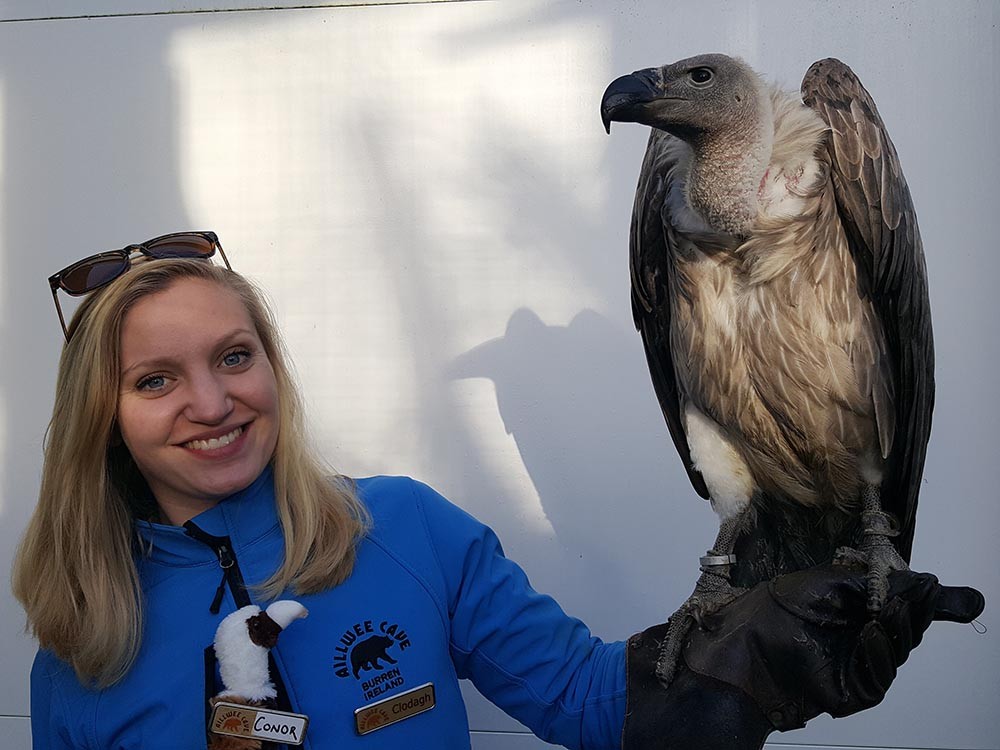
As part of its on-going commitment to raptor conservation, the Birds of Prey Centre at Aillwee sent one of its staff members to Nepal to assist in a major research programme.
The use of the veterinary drug Diclofenac has seen a population decline in Asian vultures faster than that of the dodo. As one of the most serious bird conservation issues currently on the planet, with huge consequences for human health, the Birds of Prey Centre at Aillwee is joining global wildlife conservation groups to tackle this issue.
Hailing from Cork, 24-year-old zoologist Clodagh Helen will travel to Nepal to assist in important research in the Himalayan foothills. As one of the handlers at the centre in Ballyvaughan, Co Clare, Helen works in close proximity with these incredible and misunderstood birds.
“Every day at the centre, I strive to get people to understand the importance of their vital role in our world,” Clodagh says. “I hope my trip highlights their desperate plight for survival, and helps people see that without the vultures cleaning up dead and decaying waste, local human and animal disease could become unmanageable.”
James Irons, manger at the Bird of Prey Centre, said: “We have been involved with vulture conservation in Nepal for a number of years now, and are committed to lending manpower and funding when possible. It’s going to be amazing for Clodagh to be in such a stunning part of the world assisting in vulture conservation on the ground.”
For the journey, Clodagh will be travelling with Conor the Vulture, pictured together with one of the resident vultures at the centre.
You can follow their Himalayan adventures through the centre’s and Aillwee’s Facebook and Instagram (#burrenbirdsofprey, #aillwee).